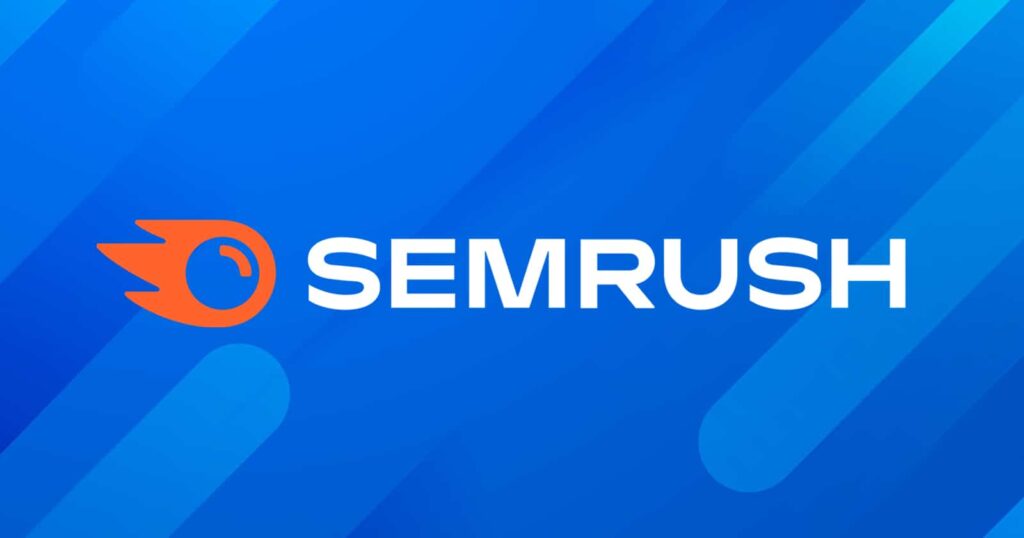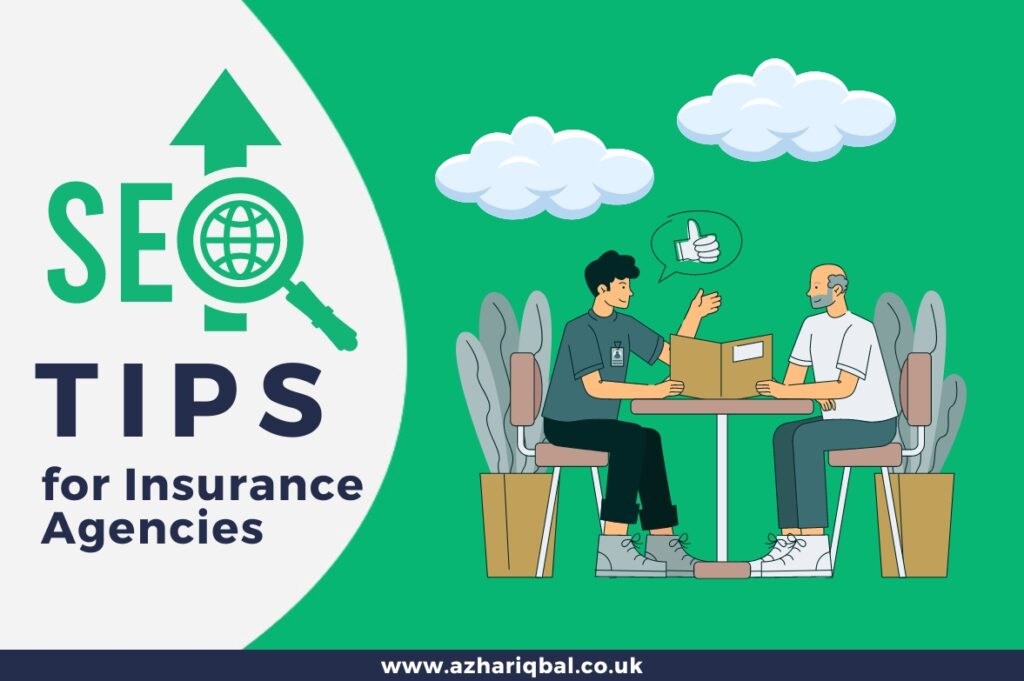This guide will share useful tips for insurance agencies to improve their SEO efforts and increase their visibility online. In today’s digital world, having a strong online presence is crucial for insurance agencies. Indeed, using effective SEO strategies can help you reach more potential clients and stand out from the competition.
By implementing these strategies, you can ensure that your website ranks higher in search engine results. As a result, this will attract more visitors and potential clients to your agency, enhancing your overall online presence and success.
Over 70% of people research companies online, with 95% of clicks going to the first page of search results. Securing a top spot is crucial.
Investing in insurance SEO helps your agency rank higher on Google, attracting more potential clients.
Steps to Improve SEO for Insurance Agencies
SEO, or Search Engine Optimization, involves improving your website and content to rank higher in search engine results. Higher rankings lead to more visibility, which can bring more visitors and potential clients to your site. For insurance agencies, SEO is particularly important because it helps you reach a local audience looking for insurance services. By optimizing your website for search engines, you can ensure that your agency appears in search results when potential clients are looking for insurance providers in your area.
Here are a few steps you must perform to improve your insurance website SEO:
Keyword Research
Finding the right keywords is the first step in any SEO strategy. Tools like Google Keyword Planner, SEMrush, and Ahrefs can help you find relevant keywords that potential clients are searching for. Focus on long-tail keywords to target specific needs and reduce competition. For instance, instead of just “insurance,” use “affordable car insurance for young drivers” or “home insurance for first-time buyers.”
Remember, “tips for insurance agencies” should appear naturally in your content. Effective keyword research ensures that you are targeting the right audience and meeting their specific needs.Tools for Keyword Research.
Read Our Blog: List of Free Keyword Research Tools
Google Keyword Planner
This free tool provides valuable keyword ideas and traffic estimates. It helps you find popular search terms related to your business, including “tips for insurance agencies,” and offers data on how often these terms are searched and how their popularity has changed over time.
This tool allows you to make informed decisions about which keywords to target in your SEO strategy, ensuring you effectively address the needs of your audience.
SEMrush
This tool offers detailed keyword analysis and competitive research. In particular, SEMrush enables you to see which keywords your competitors are ranking for, which helps you identify opportunities to outperform them. Therefore, you can adjust your strategy to gain a competitive edge and improve your own rankings.
Ahrefs
Ahrefs is renowned for its comprehensive backlink analysis and keyword research capabilities. Additionally, it provides insights into search volume, keyword difficulty, and potential traffic. As a result, you can choose the best keywords for your SEO strategy based on detailed data and analysis.
Google Keyword Planner
On-Page SEO
- Optimizing Titles and Meta Descriptions
Make sure your titles and meta descriptions are compelling and include your main keyphrase, “tips for insurance agencies,” at the beginning. By doing this, you help search engines understand the main topic of your page and encourage users to click through to your site. Furthermore, crafting engaging and relevant meta descriptions can significantly improve your click-through rate. As a result, well-optimized titles and descriptions not only enhance search engine visibility but also attract more visitors to your site - Using Headers Effectively
Use H1 for your main title and H2, H3 for subheadings. This structure helps search engines understand your content better and makes it easier for readers to navigate your page. Proper header use improves readability and can positively impact your SEO by highlighting the key points of your content. - Keyword Placement
Include your keyphrase, “tips for insurance agencies,” naturally within the first 100 words, in headings, and throughout the content. However, avoid overusing it, as this can lead to keyword stuffing and penalties from search engines. Instead, focus on a natural and strategic placement of “tips for insurance agencies.” This approach helps search engines understand the relevance of your content to users’ search queries, enhancing your chances of ranking higher in search results. Consequently, you can improve your content’s visibility while maintaining readability.
Read Our Blog: 5 On-Page SEO Optimization Tools
Creating High-Quality Content
Creating high-quality content is essential for engaging your audience and improving your SEO. Here are some tips for insurance agencies:
- Engaging Content
Write informative and interesting content that addresses your audience’s needs and questions. Your content should provide value and answer common questions about insurance. Engaging content keeps readers on your page longer, reducing bounce rates and improving your SEO rankings. - Keyword Integration
Use your keyword naturally and ensure it appears no more than twice every 500 words. Overuse of keywords can make your content sound unnatural and can be penalized by search engines. Focus on creating content that reads well and provides value to your audience. - Multimedia Use
Include relevant images and videos to make your content more appealing and shareable. Multimedia elements can break up text and make your content more engaging. They also provide additional opportunities for optimization with alt text and descriptions.
Local SEO
Local SEO is particularly important for insurance agencies, as most clients search for services in their local area. Here’s how to optimize for local search:
- Google My Business
Claim and optimize your Google My Business listing. Ensure your business information, such as name, address, and phone number, is accurate and up-to-date. This helps your agency appear in local search results and on Google Maps, making it easier for potential clients to find you. - Local Keywords
Use local keywords, such as “insurance agencies in [Your City],” to attract local clients. Include these keywords in your content, titles, and meta descriptions to improve your visibility in local search results. This helps you connect with clients who are specifically looking for insurance services in your area. - Reviews
Encourage satisfied clients to leave positive reviews. Respond to reviews to show engagement and build trust. Positive reviews can enhance your online reputation and influence potential clients’ decisions. They also contribute to your local SEO by increasing your visibility in local search results.
Technical SEO
Technical SEO can significantly impact your website’s performance and search engine rankings. Pay attention to the following:
- Site Speed
Ensure your website loads quickly. Use tools like Google PageSpeed Insights to identify and fix issues that might be slowing down your site. A fast-loading website provides a better user experience and can improve your rankings in search results. - Mobile-Friendliness
Make sure your website is mobile-friendly. A responsive design that adapts to different screen sizes improves user experience and SEO. With more people accessing the internet via mobile devices, having a mobile-friendly site is crucial for reaching a wider audience. - XML Sitemap
Create and submit an XML sitemap to help search engines index your site more effectively. A sitemap provides a roadmap of your website, making it easier for search engines to find and rank your pages. Regularly update your sitemap to reflect any changes to your site.
Read Our Blog:Technical SEO Elements – A Comprehensive Guide
Enhancing User Experience
A good user experience (UX) is crucial for SEO. A website that is easy to navigate and provides valuable information will keep visitors engaged longer. Focus on the following elements:
- Intuitive Navigation
Ensure your website is easy to navigate with clear menus and links. A well-organized site structure helps users find the information they need quickly and easily, improving their overall experience and encouraging them to spend more time on your site. - Quality Content
Provide content that is relevant, informative, and useful to your visitors. High-quality content that addresses your audience’s needs can build trust and establish your authority in the insurance industry. It also increases the likelihood of visitors returning to your site. - Fast Load Times
Optimize your site to load quickly on both desktop and mobile devices. Fast load times enhance user experience and can positively impact your SEO rankings. Regularly test your site speed and implement improvements to ensure optimal performance.
Link Building
Building high-quality backlinks is vital for improving your site’s authority and search engine rankings. Consider these strategies:
- Earning Backlinks
Create valuable content that others want to link to. This can include blog posts, infographics, and case studies. High-quality content is more likely to be shared and linked to by other websites, which can improve your site’s authority and visibility. - Guest Posting
Write guest posts for reputable websites in your industry. Include a link back to your site in your author bio or within the content. Guest posting helps you reach a broader audience and build relationships with other industry professionals. - Local Partnerships
Collaborate with local businesses and organizations for mutual backlink opportunities. Partnering with local entities can help you build a network of high-quality backlinks and increase your visibility in local search results.
Social Media Integration
Integrating social media into your SEO strategy can amplify your reach and engagement. Here’s how:
- Share Content Regularly
Share your blog posts and other content on social media platforms to drive traffic back to your website. Consistent sharing helps you stay top of mind with your audience and increases the likelihood of your content being shared. - Engage with Followers
Respond to comments and messages to build relationships with your audience. Engaging with your followers shows that you value their input and can help build a loyal community around your brand. - Use Social Proof
Showcase testimonials and positive reviews on your social media profiles to build credibility. Social proof can influence potential clients’ decisions and increase their trust in your services.
Monitoring and Analytics
Regularly monitoring your SEO performance is essential to ensure your strategies are working. Use tools like Google Analytics and Google Search Console to track your progress:
- Performance Tracking
Monitor key metrics like organic traffic, bounce rate, and conversion rate. Analyzing these metrics helps you understand how well your SEO efforts are paying off and where there is room for improvement. - Regular Audits
Conduct SEO audits to identify and fix any issues that may be affecting your website’s performance. Regular audits help you maintain a healthy website and ensure that your SEO strategies are effective. - Strategy Adjustment
Be flexible and adjust your strategy based on your analytics data. Continuously optimizing your approach ensures that you stay ahead of the competition and continue to improve your search engine rankings.

Implementing these SEO tips for insurance agencies can significantly boost your online visibility and attract more clients. By focusing on keyword research, on-page SEO, high-quality content, local SEO, technical SEO, user experience, link building, social media
Why is SEO important for insurance companies?
Firstly, SEO is crucial for insurance companies because it increases online visibility. Additionally, it attracts more potential clients and helps you stand out from competitors by ranking higher in search engine results.
What does SEO stand for in insurance?
SEO stands for Search Engine Optimization. Essentially, it involves optimizing your website and content to rank higher in search engine results, thereby attracting more organic traffic.
How can I improve my SEO tips?
To begin with, focus on thorough keyword research. Furthermore, create high-quality content, optimize on-page elements (titles, meta descriptions), enhance site speed, and build quality backlinks.






